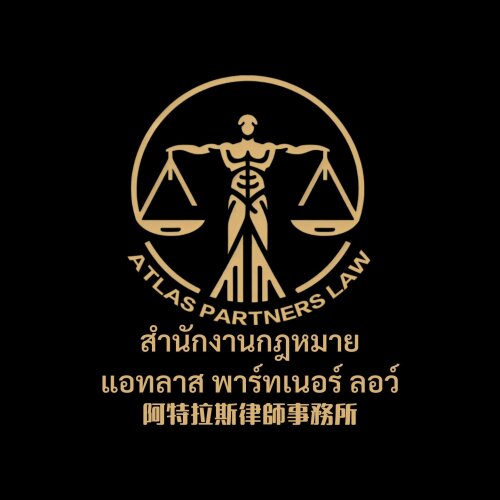Best Retirement Lawyers in Chiang Mai
Share your needs with us, get contacted by law firms.
Free. Takes 2 min.
List of the best lawyers in Chiang Mai, Thailand
About Retirement Law in Chiang Mai, Thailand
Chiang Mai, Thailand, is a popular destination for retirees from all over the world, thanks to its rich culture, affordable cost of living, and warm climate. Thai retirement law primarily revolves around obtaining a retirement visa, also known as a long-stay visa (Non-Immigrant O-A), which is a crucial aspect for foreign retirees intending to settle temporarily or permanently. Understanding local regulations, healthcare requirements, and financial obligations is paramount for a smooth retirement experience in this region.
Why You May Need a Lawyer
Hiring a lawyer specializing in retirement issues in Chiang Mai is beneficial for several reasons:
- Visa Application: Navigating the complexities of retirement visa applications and renewals can be challenging without expert guidance.
- Property Acquisition: Legal assistance is crucial when purchasing or leasing property to ensure compliance with Thai land and property laws.
- Healthcare and Insurance: Understanding the legal aspects of healthcare and securing the appropriate insurance coverage can be complex.
- Pension and Financial Management: Legal advice is often needed for managing pensions and other financial resources effectively within Thai legal frameworks.
- Estate Planning: Lawyers can ensure that wills, inheritances, and other estate planning documents comply with Thai laws.
Local Laws Overview
Key aspects of local laws that retirees should be aware of in Chiang Mai, Thailand:
- Retirement Visa Regulations: The requirement to obtain a Non-Immigrant O-A or O-X visa, including financial proof and health insurance.
- Financial Requirements: A specified amount in a Thai bank account or proof of monthly income as stipulated by immigration laws.
- Property Ownership: Foreigners cannot own land but may own buildings on land or lease property under specific agreements.
- Health Insurance Requirements: Mandatory health insurance for retirees over 50 years old covering specific health-related expenses.
- Tax Implications: Understanding the implications of Thai tax on foreign income and pensions.
Frequently Asked Questions
What is the main requirement for obtaining a retirement visa in Thailand?
The primary requirement includes being 50 years or older, maintaining a bank account with a specified amount, or showing proof of monthly income.
Can I work in Thailand on a retirement visa?
No, a retirement visa strictly prohibits employment or business operations while residing in Thailand.
How can I own property in Thailand as a foreign retiree?
Retirees can own condominiums or lease land but are restricted from owning land outright in Thailand.
Do I need health insurance in Thailand as a retiree?
Yes, obtaining health insurance that meets the requirements outlined by Thai immigration is mandatory for retirees.
How often do I need to renew my retirement visa?
Retirement visas need to be renewed annually, with financial documentation submitted at each renewal.
What should I do about my pension income from my home country?
Most retirees receive pensions through international banks, but it is crucial to understand the bilateral tax agreements between Thailand and one’s home country.
Is estate planning necessary in Thailand?
Yes, it is advisable to engage in estate planning to ensure assets and finances are managed according to local laws and personal wishes.
Can I access public healthcare facilities in Thailand?
While retirees can access public healthcare, it is often recommended to have private health insurance for better services and coverage.
Are there specific financial requirements for renewing a retirement visa?
Yes, proof of continued financial capability, either through bank statements or monthly pension evidence, is required.
How does Thai law affect my investments as a retiree?
Legal counsel can help manage investments, particularly regarding compliance with local regulations and tax obligations.
Additional Resources
For further guidance and resources, retirees can turn to the following:
- Thai Immigration Bureau: For comprehensive visa and immigration queries.
- Board of Investment of Thailand: Assistance with property and investment regulations.
- Expat Community Groups: Local groups and forums can offer practical advice and support.
- Thailand Revenue Department: For understanding tax implications and requirements.
- Insurance Companies: Private insurance firms can help outline suitable health plans for retirees.
Next Steps
If you seek legal assistance regarding retirement in Chiang Mai, consider the following steps:
- Consultation: Schedule a consultation with a local retirement law attorney to understand your needs and options.
- Documentation: Gather necessary financial documents, identification, and current immigration status papers for precise legal guidance.
- Community Engagement: Engage with expat communities to gather recommendations for reputable legal services.
- Continual Education: Stay informed about changes in Thai retirement and immigration laws by subscribing to news and updates from trusted sources.
Lawzana helps you find the best lawyers and law firms in Chiang Mai through a curated and pre-screened list of qualified legal professionals. Our platform offers rankings and detailed profiles of attorneys and law firms, allowing you to compare based on practice areas, including Retirement, experience, and client feedback.
Each profile includes a description of the firm's areas of practice, client reviews, team members and partners, year of establishment, spoken languages, office locations, contact information, social media presence, and any published articles or resources. Most firms on our platform speak English and are experienced in both local and international legal matters.
Get a quote from top-rated law firms in Chiang Mai, Thailand — quickly, securely, and without unnecessary hassle.
Disclaimer:
The information provided on this page is for general informational purposes only and does not constitute legal advice. While we strive to ensure the accuracy and relevance of the content, legal information may change over time, and interpretations of the law can vary. You should always consult with a qualified legal professional for advice specific to your situation.
We disclaim all liability for actions taken or not taken based on the content of this page. If you believe any information is incorrect or outdated, please contact us, and we will review and update it where appropriate.










